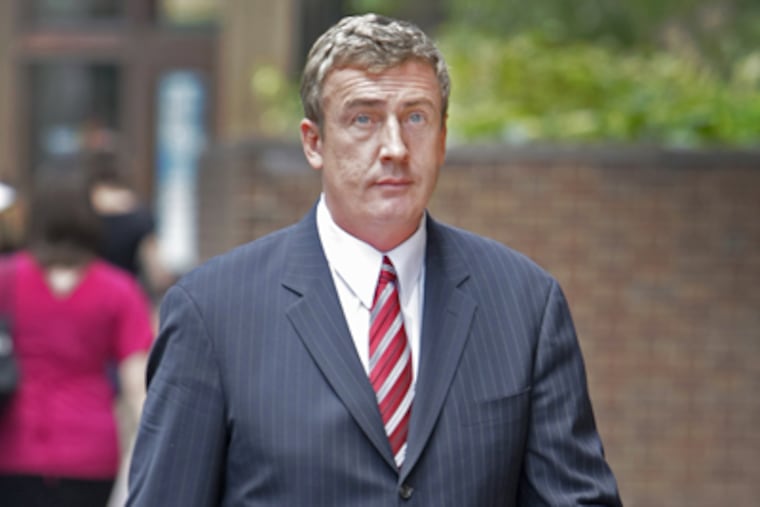Appeals court vacates convictions of three in Phila. corruption case
A former City Council staffer, a businessman, and a lawyer had their convictions in a 2009 Philadelphia corruption trial vacated Wednesday by a federal appeals court.

A former City Council staffer, a businessman, and a lawyer had their convictions in a 2009 Philadelphia corruption trial vacated Wednesday by a federal appeals court.
Now, U.S. Attorney Zane David Memeger will have to decide whether to retry the men or resolve the case through a plea bargain.
The defendants, including Christopher G. Wright, 47, who was chief of staff to former City Councilman Jack Kelly, were convicted in U.S. District Court of honest-services fraud, mail fraud, and conspiracy.
Wright was found guilty of accepting a rent-free apartment from developer Ravinder Chawla and free legal services from Chawla's lawyer, Andrew Teitelman, while intervening on their behalf with city government in a number of areas.
Wright received a four-year sentence; Chawla and Teitelman were sentenced to lesser terms.
All were released on bail in 2010, pending their appeals, after a U.S. Supreme Court decision narrowed the basis for convictions under the "honest services" law.
That law says it is a crime "to deprive another of the intangible right of honest services," but the high court said a conviction must include clear-cut evidence of bribes or kickbacks, not just unethical dealings.
That has led to public-corruption convictions being overturned in a number of cases across the country.
The U.S. Court of Appeals for the Third Circuit concluded that there was "sufficient" evidence to justify the Philadelphia convictions, but that the Supreme Court decision meant the 2009 jury instructions were erroneous and may have "tainted" the "traditional fraud convictions" under the mail-fraud law.
The question is whether jurors thought evidence was sufficient to convict the men of "traditional" fraud or only of a crime under the honest-services definition voided by the Supreme Court.
"Because our law of honest-services fraud leaves so much to intent and because intent leaves so much to the jury's ability to make reasonable inferences" from the evidence, the court said, "we cannot say this error was harmless."
Assistant U.S. Attorney Robert A. Zauzmer said the office "will review the opinion, and, I assume as of right now, there will be a retrial." Zauzmer oversees appellate cases for the office.
But prosecutors could discuss a plea bargain. Wright spent 10 months in jail out of a four-year sentence. His defense attorney, Lisa A. Mathewson, said the appellate decision also said "innocent explanations were plausible."
Chawla's attorney, Peter Goldberger, said he was disappointed that charges had not been dismissed. "We made a strong argument that the evidence was not strong enough to justify convictions of any of the defendants," he said.
Wright got a free apartment in a Chawla building that normally rented for $1,200 to $1,500 a month. Teitelman, whom Wright called his best friend, then assisted Wright with legal help.
In the meantime, Wright was working with Chawla; Chawla's brother Hardeep; and Teitelman to straighten out back taxes and utility bills, and track legislation that could threaten an ambitious development in Center City along the Schuylkill. That project has never gone forward.
Teitelman was also Kelly's campaign treasurer, and the Chawlas were Kelly's most generous campaign donors.
Ravinder Chawla, 61, received a 21/2-year sentence. Teitelman, 52, was given a 24-month term in late September. Hardeep Chawla was acquitted at trial.